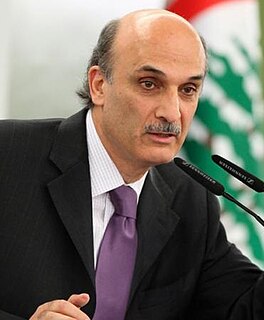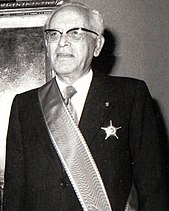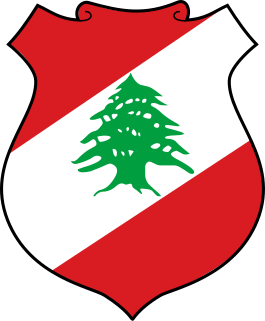Lebanon is a semi-presidential parliamentary democratic republic within the overall framework of confessionalism, a form of consociationalism in which the highest offices are proportionately reserved for representatives from certain religious communities. The constitution grants the people the right to change their government. However, from the mid-1970s until the parliamentary elections in 1992, civil war precluded the exercise of political rights. According to the constitution, direct elections must be held for the parliament every 4 years but after the parliamentary election in 2009 another election was not held until 2018. The Parliament, in turn, elects a President every 6 years to a single term. The President is not eligible for re-election. The last presidential election was in 2016. The president and parliament choose the Prime Minister. Political parties may be formed; most are based on sectarian interests. 2008 saw a new twist to Lebanese politics when the Doha Agreement set a new trend where the opposition is allowed a veto power in the Lebanese Council of Ministers and confirmed religious Confessionalism in the distribution of political power. The Economist Intelligence Unit classified Lebanon as a "hybrid regime" in 2016.

The President of the Czech Republic is the elected formal head of state of the Czech Republic and the commander-in-chief of the Military of the Czech Republic. Unlike counterparts in other Central European countries such as Austria and Hungary, who are generally considered figureheads, the Czech president has a considerable role in political affairs. Because many powers can only be exercised with the signatures of both the President and the Prime Minister of the Czech Republic, responsibility over some political issues is effectively shared between the two offices.

Elias Hrawi was President of Lebanon, whose term of office ran from 1989 to 1998.
The Taif Agreement was an agreement reached to provide "the basis for the ending of the civil war and the return to political normalcy in Lebanon". Negotiated in Ta'if, Saudi Arabia, it was designed to end the decades-long Lebanese Civil War, reassert Lebanese authority in Southern Lebanon, though the agreement set a time frame for Syrian withdrawal and stipulated that the Syrians withdraw in two years. It was signed on 22 October 1989 and ratified by the Lebanese parliament on 5 November 1989.

Samir Farid Geagea is a Lebanese militia leader and politician. He is also the executive chairman of the Lebanese Forces, a Christian political party in Lebanon.

Michel Naim Aoun is a Lebanese politician who is the current President of Lebanon. He was elected president on 31 October 2016 on the 46th electoral session of the Lebanese parliament, breaking a 29-month deadlock. He is a Maronite Christian and the founder of the Free Patriotic Movement.

René Moawad as 13th President of Lebanon for 17 days in 1989, from the 5 to 22 November, when he was assassinated by unknown assailants.

Selim Ahmed Hoss is a veteran Lebanese politician. He was a Prime Minister of Lebanon and a longtime Member of Parliament representing his hometown, Beirut. He is known as a technocrat.

Nasrallah Boutros Sfeir is the patriarch emeritus of Lebanon's largest Christian body, the Maronite Church, an Eastern Catholic Church in communion with the Holy See. He is also a Cardinal. He was elected Patriarch of Antioch for the Maronites on 27 April 1986, and his resignation was accepted on 26 February 2011. He is the third Maronite Cardinal and he was the 76th Patriarch of the Maronite Church with the official title of "His Beatitude and Eminence the seventy-sixth Patriarch of Antioch and the Whole Levant".

The Free Patriotic Movement (FPM), also known as the Aounist party, is a Lebanese political party, led by Gebran Bassil. It is the largest party in the Lebanese parliament. Its parliamentary coalition, the Strong Lebanon Bloc has 29 out of the 128 seats in parliament.

The President of the Lebanese Republic is the head of state of Lebanon. The president is elected by the parliament for a term of six years, which is not immediately renewable. By convention, the president is always a Maronite Christian.

Nassib Lahoud was a Lebanese-Christian political figure. He held various posts including Minister of State, Member of parliament and Ambassador to the United States of America. He was also head of the Democratic Renewal Movement and a leading figure in the March 14 coalition, which nominated him as their presidential candidate when they held the parliamentary majority in 2008. His election was vetoed by Hezbollah and its allies, who refused to attend parliament and threatened not to recognise any president who was not the product of a consensus agreement between Lebanese political forces. President Michel Suleiman was elected to the post on 25 May 2008.
An indirect presidential election was held in the Parliament of Lebanon on 25 May 2008, after the term of incumbent President Émile Lahoud expired on 24 November 2007 at midnight. General Michel Sleiman, the Commander of the Lebanese Armed Forces, was elected as the consensus candidate after months of delays in holding the election due to an ongoing political dispute.
The 8th Infantry Brigade (Lebanon) is a Lebanese Army unit that fought in the Lebanese Civil War, being active since its creation in January 1983.

Michel Georges Sassine was a prominent Lebanese politician. He was a member of the Lebanese parliament for twenty-four consecutive years (1968–1992) representing the district of Ashrafieh, Beirut. He served several times as Vice-Prime Minister, Deputy Speaker of Parliament, and cabinet Minister. He founded the Ministry of Housing and Cooperatives, and was appointed as Minister of Labor, Tourism and others in more than seven governments. Throughout his political career he was renowned for his strong ethics and anti-corruption principles. He took the lead on several historic turning points including the 1970 Presidential election, and the Taif Agreement in 1990.

A series of rounds in the Lebanese presidential election were held from 23 April 2014 until 31 October 2016. No candidate reached a two-thirds majority vote in the first round, and subsequent rounds failed to gain a quorum. Finally in the forty-sixth round held on 31 October 2016, Michel Aoun, a Member of Parliament and formerly a disputed Prime Minister and Acting President in a rival government near the end of the Lebanese Civil War, was elected with 83 votes in Parliament. He took office the same day as the 12th President of Lebanon since independence in 1943.
An indirect presidential election was held in the Parliament of Lebanon on 24 November 1998, resulting in General Emile Lahoud being elected President of the Lebanese Republic.

The Council of Ministers of Lebanon is the executive body of the Republic of Lebanon. Its president is the Prime Minister of Lebanon, and it appointed by the President of Lebanon with confirmation of the Parliament of Lebanon. It is generally equally composed of Muslims and Christians. The Council of Ministers is considered to be the "government" of Lebanon by the Constitution.
An indirect presidential election was held in the Parliament of Lebanon on 5 November 1998, resulting in Deputy René Moawad being elected President of the Lebanese Republic.

An indirect presidential election was held in the Parliament of Lebanon on 5 November 1970, resulting in Deputy Suleiman Frangieh being elected President of the Lebanese Republic.
















